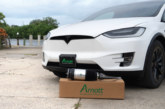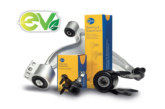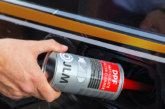Comline says it is taking the significant step of removing copper from its all-makes brake pad range, demonstrating an environmentally- responsible ethos and proactive approach to product development.
Environmental concerns in both California and Washington State have led to a clampdown on copper and other toxic materials contained inside brake pads within these regions.
Groups and regulators demonstrated that copper and other metals were being dumped onto roadways as brake pads wore down, consequently polluting streams, rivers and the wider marine ecosystem. As such, new regulations have been implemented in both states.
In both regions, by 1st January 2021, all manufacturers and importers must self- certify that their brake pads contain less than 5% by weight of copper. And, by 1st January 2025, that figure must be lower than 0.5% – effectively banning the use of copper in brake pads altogether.
Ahead of the curve
Whilst these regulations are only applicable in these two US states, Comline says it is taking the proactive and environmentally-responsible step of removing copper from its brake pads and is already well-ahead of the curve with a copper-free, R90-compliant range.
The company claims to employ stringent manufacturing processes in its own production facilities assuring complete control over specification and materials. This has enabled the brand to swiftly develop its copper-free solution.
Comline Director of Braking Product Development, Dr. Keith Ellis, said: “Comline is aiming to be at the leading edge on copper-free solutions for the independent aftermarket in Europe. We already have our range in place for passenger cars and LCV with a similar copper-free offering for commercial vehicles – trucks and trailers – nearing completion.
“There may not be any direct, regulatory need for Comline to go copper- free here in Europe, but we cannot rule out the possibility that such laws might – and I emphasise might – be introduced here in the future. In addition, now that we are aware of the potential negative impact on the environment, we are obviously keen to eradicate copper from all Comline pads at the earliest opportunity.”
Being ahead of the curve is nothing new for Comline, according to the company. A hard-working development team is said to operate a continuous, fast- paced development programme that ensures Comline is consistently early to market with pad and disc references.
Environmental effects of copper pollution
Excess levels of copper are toxic in aquatic environments and may adversely affect fish, invertebrates, plants, and amphibians. Severe toxic effects may include mortality of organisms; chronic toxicity can result in reductions in survival, reproduction, and growth.
Most humans are exposed to low levels of copper in food and drinking water, which is essential for maintaining good health. Exposure to slightly higher environmental levels of copper is unlikely to have adverse effects on health, but high level exposure can be harmful. Breathing high levels of copper can cause irritation of the nose and throat and the symptoms worsen should humans ingest high levels of copper, or be exposed to it for prolonged periods of time.








